Hey,
Today I thought I would share with you all two great resources all revolving around answering the same question: What’s wrong with Africa? Is it Africans?
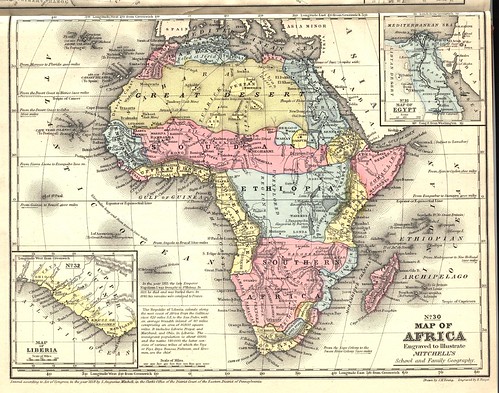
The first is a great article written by my great friend and fellow administrator of the African Dream’s Group. I have posted it below word for word. Great article by a great thinker.
The second is a discussion I had on the forums at www.mashada.com. You can find the discussion Is Africa the Problem? Or Is It Problem Africans by clicking on this link. I post under the name t.D.A. (the Displaced African). Enjoy and I hope it serves and teaches.
Be blessed; bless others,
Mwas
The Poverty of Leadership by O. Tongoi
Africa. That one word has come to be synonymous with social strife, suffering, poverty and myriads other negative connotations. Yet Africa has always been and continues to be the richest continent as far as natural resources are concerned. Why then does it continue to lag behind in terms of development? Why hasn’t it been able to jump on the bandwagon of industrialization?

Many excuses have been offered so far in an effort to explain this phenomenon and make sense of Africa’s current predicament. Many culprits have been named over the years. Among them are poverty, corruption, insufficient foreign aid among others. Yet these challenges have been overcome by other countries, societies and nations the details of which are beyond the scope of this paper. Very rarely is the underlying issue addressed however, that of poor leadership. And when it is addressed it is never done so in a conclusive manner.
“Africa has long been saddled with poor, even malevolent, leadership: predatory kleptocrats, military-installed autocrats, economic illiterates, and puffed-up posturers. By far the most egregious examples come from Nigeria, the Democratic Republic of the Congo, and Zimbabwe — countries that have been run into the ground despite their abundant natural resources. But these cases are by no means unrepresentative: by some measures, 90 percent of sub-Saharan African nations have experienced despotic rule in the last three decades. Such leaders use power as an end in itself, rather than for the public good; they are indifferent to the progress of their citizens (although anxious to receive their adulation); they are unswayed by reason and employ poisonous social or racial ideologies; and they are hypocrites, always shifting blame for their countries’ distress.
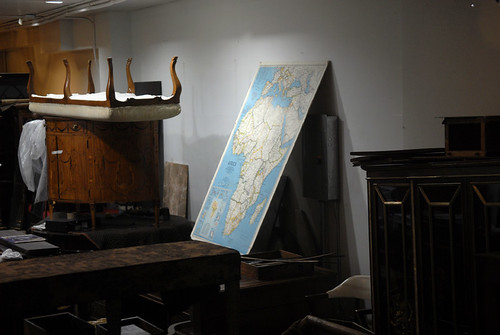
Under the stewardship of these leaders, infrastructure in many African countries has fallen into disrepair, currencies have depreciated, and real prices have inflated dramatically, while job availability, health care, education standards, and life expectancy have declined. Ordinary life has become beleaguered: general security has deteriorated, crime and corruption have increased, much-needed public funds have flowed into hidden bank accounts, and officially sanctioned ethnic discrimination — sometimes resulting in civil war — has become prevalent.” Robert I. Rotberg could not have put it better. In his article titled “Strengthening African Leadership”, published in the July/August issue of Foreign Affairs, Rotberg summed up the single most important issue facing Africa; Leadership…or lack thereof.
This failure of leadership is by no means a recent predicament. It dates back several centuries ago to the time of the slave trade. It is a known fact that the Arabs who facilitated the trade did not acquire the slaves through force or conquest of any kind, rather, they approached the leaders of the communities with beads, cowrie shells and mirrors and offered these in exchange for human beings whom they would later sell as slaves.
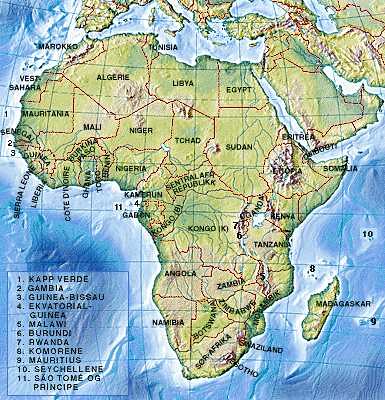
Paul E. Lovejoy wrote the following in his article, “Transformations in slavery” published by the Cambridge University Press: “Between 1450 and the end of the nineteenth century, slaves were obtained from along the west coast of Africa with the full and active co-operation of African kings and merchants. (There were occasional military campaigns organized by Europeans to capture slaves, especially by the Portuguese in what is now Angola, but this accounts for only a small percentage of the total.) In return, the African kings and merchants received various trade goods including beads, cowrie shells (used as money), textiles, brandy, horses, and perhaps most importantly, guns. The guns were used to help expand empires and obtain more slaves…”
I had earlier stated that the Arabs did not acquire the slaves through conquest of any kind. Allow me to retract that statement because they in fact pulled off a great coup by obtaining slaves in exchange for mere objects, and that is in itself a great conquest. Sadly, this conquest continues even to this day; African leaders continue to sell their people into slavery.
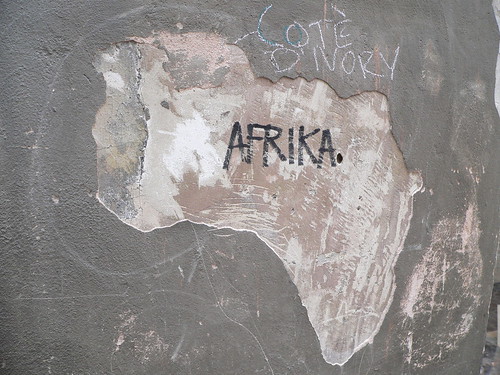
The slavery of which I now speak, however is not the traditional form of slavery in which people are held in physical captivity and made to work for others, rather I speak of an economic form of slavery in which people are bound by debt and kept in servitude by the chains of high interest rates.
Sample the following article by Susan George titled “A Fate Worse than Debt” published in the January 2006 issue of the NewAfrican magazine. She writes, “Debt is not a financial problem. It is a political problem. If you cancelled all the debt of the poorest countries tomorrow, the international financial system would not even notice. However, debt is extraordinarily useful for the [lenders]; it is much better than colonialism as you don’t need the people. But you get tremendous political advantage because you have continuous low prices for raw materials, everyone is forced to export at the same time, and you have political control over the government because of structural adjustment.” This article by George sums up the predicament Africa is in-economic slavery.

But who is to blame? For many years Africans have directed their blame to external parties especially Western powers while in fact the blame lies upon our leaders themselves. It would only make sense for the leaders of the lending countries to seek to improve their economic strength and the financial position of their corporations by creating markets for them. What doesn’t make sense, however, is why the leaders of the borrowing countries would agree to such terms and continue to dig their people deeper into debt.
One of the things that saddens African intellectuals most is the fact that about 40 years ago, at the time when most African countries were gaining independence, they were at par with most Asian countries in terms of economic and social development. However, since then the Asian countries which have come to be known as the ‘East Asian Tigers’, have realized tremendous growth and industrialization and have propelled themselves into the elite class of first-world countries. One can be quick to conclude that their planning was superior. The truth is quite the contrary; the master plans used by the East Asian Tigers borrowed heavily from those developed by the Kenyan government of the time. Why then is Africa lagging behind? Perhaps this excerpt from a speech by Nigerian president Olesegun Obasanjo can help shed light on the matter: “…In 1960, whatever parameters you look at, whether social or economic indicators, Africa has declined compared to the rest of the world, particularly when measured against those parts of the world that were comparable to us at that time such as Asia and Latin America,” he said. “Why are we failing while the rest of the world is succeeding, yet Africa [is not any less endowed compared to other parts of the world?] I believe one word answers that question: Leadership,” he said.
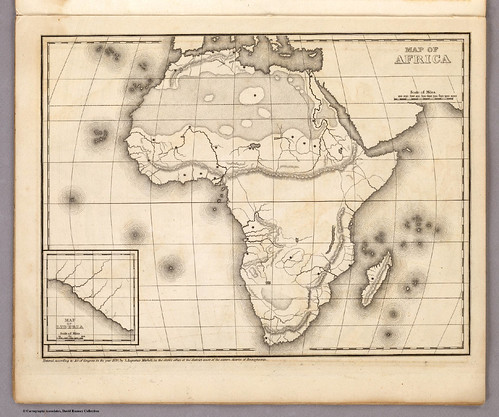
Later on in the speech he went on to give his solution to the challenge. He mentioned that “…it lies in doing things right, and in having the right leadership. The difference between doing things right and doing things wrong is enormous…Africa cannot continue on the same negative road (of having poor leadership) and expect things to work for the better.
One might ask the question, “How and when did this failure of leadership start?”
In my opinion, it all started in the colonial era when the Europeans empowered a few Africans and gave them some sort of education with a view to using them to govern their own people. As a result, a culture in which leadership was imposed on the people began. In this new culture, leaders governed using the divide and rule principle. They oppressed the people placed under them rather than empowering them. They had their own interests at heart and ensured that they kept their fellow Africans oppressed because that way they would remain relevant to the European colonialists and ensure that no other Africans could rise and take their positions.

The greatest tragedy was when Africans came to not only tolerate but accept such leadership, much in the same way as a terminal patient accepts their illness-without a fight and with a sense of defeat and helplessness. I must, however at this point mention the ‘Maumau’ freedom fighters as an exception because failure to do so would be a great injustice to them for the sacrifice they made in their efforts to repel the colonialists. Other than for the exertions of those few brave and fearless souls, the general norm of behavior was inaction.
Returning to my argument, allow me to fast-forward to the first few years of the post-independence era. This was indeed a decisive period in the formation of the continent’s political future. On the one hand we had excellent leaders such as Ghana’s Kwame Nkrumah and Tom Mboya of Kenya who were totally committed to the greater good of their people. By a sad twist of fate these great men were assassinated either by foreign powers that were against their ideologies or by their compatriots who considered them a threat to their own power.( At this point another great tragedy occurred, for no one rushed to the frontline to take up the fallen heroes’ battle cries, condemning the African dream to the graveyard.) On the other hand, however, there emerged a different breed of leaders. These considered themselves as heroes and rewarded themselves with large tracts of land and other public resources and set off along the path of self-aggrandizement while ignoring the greater good of their people. These sought to create economic empires and political dynasties by surrounding themselves with their tribesmen and appointing sycophants into political office regardless of their level of qualification or lack thereof. Unfortunately, the latter breed of leaders comprised the majority, thrusting Africa backward and in most cases erasing the gains of the newly-acquired independence of the African states they led.
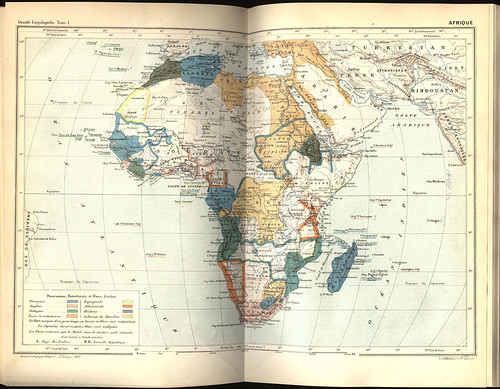
Another category of early African powerbrokers is curiously missing from the aforementioned list. It is not without intention that I left military dictators out of this equation. These cannot be categorized as leaders but rather as tyrants. For this reason and for the purpose of focusing on the main points of my argument, allow me to exclude them from my argument altogether.
Two score years after the first generation of leaders had taken the reins of government from the Europeans, a new generation of leaders had taken over and these too seemed intent on carrying on the legacy of their predecessors. They continued to widen the rift between the ‘haves’ and the ‘have-nots’ as a new political and social class system developed.
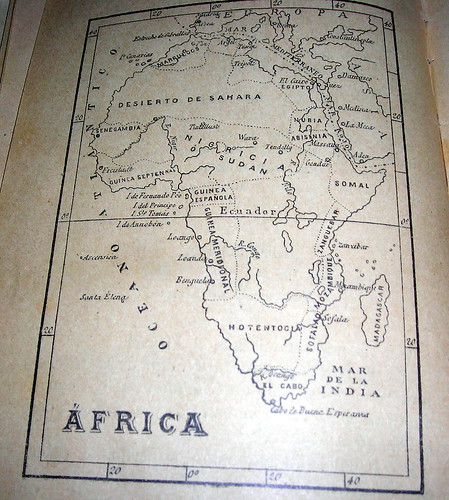
While I have noted that the first generation had taken over from the Europeans, the next generation was mainly composed of the preferred successors of the first generation. As such they had been groomed to take over and, reminiscent of the colonial eras, they were proposed if not outrightly imposed upon the people.
At this point yet another tragedy occurred; it took the form of the emergence of a new political system based on personalities rather than on issues. The stage was set for the elevation of certain people-mainly sycophants-into “great” political personalities despite their lack of character and/ or competence. Politics became a mere game of words and wordplay. Semantics blurred the underlying issues. Promises were broken almost as soon as they were made, if not sooner. A mockery was made of the justice system and some people turned out to be more equal than others. The mess continues until today.

It would indeed be a sad state of affairs and the greatest of tragedies if we concluded that Africa is beyond help; that it is too late to recover from its past. There is indeed hope for Africa-hope that is vested in a new breed of leaders. You may at this juncture be inclined to think that I am in the advanced stages of plotting a coup attempt; and if you are so inclined then you would be right to some extent.
The leadership which I envisage, however, is far from the traditional quest for coercive power and control of common resources that is as common today as it was in the past. I envisage a form of leadership based solely on unselfish ambition; as opposed to the familiar form of leadership where leaders strive to merge their own selfish ambitions with the common good of the people and attempt to strike a sort of balance between the two. I speak of a leadership style founded in the greater good of those it hopes to serve, such that the leader would spare no effort nor avoid no sacrifice which would result in the greater fortunes of those that it serves. A leadership so deeply rooted in the principles which give it its mandate, that no entity can question its sincerity. Indeed, such leadership has been sought after and striven towards by many whose efforts, sadly, came to naught. The reason? I cannot claim to posses the depth of insight required to provide the answer to such a question but allow me this modest attempt…
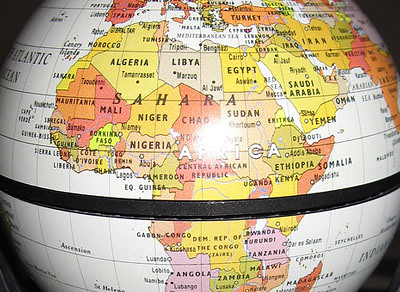
The reason why this style of leadership and the success it promises has eluded Africans is based on a number of factors influenced mainly by our perception of leadership. From our up-bringing, lessons on leadership have been focused on the wrong attributes of a leader, concentrating more on what the leader is rather than on who the leader is. We look at the leader’s public lifestyle rather than seeking to know what the leader does when he is out of the lime-light. We place a lot of emphasis on the major decisions made by the leader while failing to see the minor decisions that the leader makes, or rather, ignoring those minor decisions and passing them off as irrelevant. This pattern of selective attention may be attributed to our fascination with the romance of the larger-than-life image created by the media and the fuss over major news-breaking events, oblivious to the fact that today’s news began falling into place yesterday, with the daily, routine and apparently ‘un-newsworthy’ actions and choices that were made in obscurity.
Africans tend to look externally for leaders rather than looking internally and taking initiative to lead in ways which are open to all of us. We have become so accustomed to passing the blame that we fail to see our own failure to make a difference. We each must strive to invest in our own capacity as positive influencers of those around us. We should not only search for virtue in others but must also vow to uphold it in ourselves. Africa is in dire need of people who can lead themselves. Africans have indeed been plagued by poor leadership. But in the end, we cannot blame the leaders who hold certain titles or positions in society. The buck stops with every individual African who is looking to blame external sources for their current situation. Personal leadership and accountability is the key to Africa’s woes.
You dig?
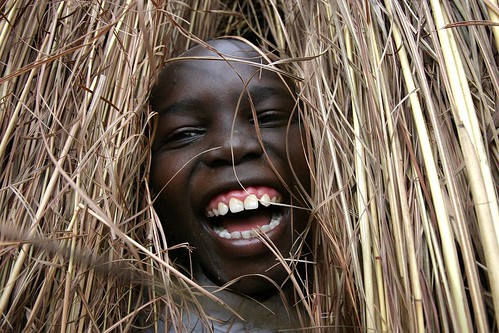
Tags: African, African identity, African leadership, African psychology, leadership
great blog!! found it quite interesting tho i feel ur missing mother africa’s loving arms.maybe u should come into her loving embrace.
Soon and very soon I shall return and nestle myself warmly in the womb of Mama Africa. But sadly there is much preparation and learning to be done in the West.
Thanks for the feedback and the comment bruh. Have a great day
[…] i would share it with y’all (apologies for the length) taken from: 1) The Displaced African: what’s wrong with africa? is it africans? 2) The african dream group: the poverty of leadership And i quote: Africa. That one word has […]
Finding your site was an accident thanks to google, but I like it
You bleeding hearts that can’t admit that the african (black race) of people are INFERIOR…until you get it, you will destroy the future of the next generations; becasue for some stupid reason, the bleeding hearts foster the rampant birth rate of the Inferior genetic black/african people. For Example…Name one large population (1,000 or more blacks) that live in a group that can succeed on it’s own without the help of White people. This is a FACT you idiot bleeding hearts cannot deny. I understand that individual black people can be very successful and even have a high intelligence. But the FACTs of the matter are: blacks are INFERIOR, and there is not a single successful group (1,000 or more) located in the World, not even in the United States or Europe, not in the Middle East, Asia…NO-Where!!!! Get it through your stupid thick skulls bleeding hearted idiots…it is not their leadership, it is the Fact that blacks as they live in a group cannot succeed because of their Inferior genetics…!!!!
@Intelligent: I am sure you are a nice guy but even you’ve got to know that what you’ve just written above is absolute drivel that ignores history the current socio-economic make up of the world….heck I think you probably came up with an idea like that sitting in your house in your underwear.
I knew you had really railed off the deep end when you included Asians – you know the folks who have had civilizations and empires since time immemorial and the Middle East – you know one of the birth places of a lot of modern philosophy and medicine.
Seriously man I know you want to get angry about something; choose wisely, you’re out of your element on this one.
Have a great 2009.
I’m afraid I don’t see much hope for Africa either. I’m really sorry. No invention, no forward vision, no sense of sustainability, no thought of future generations, no conservation of nature and wildlife, no respect for law and order. Just slaughtering one another and having children by the dozens.
No logic. No rational thinking. A mother having so many children in those conditions is no mother. Africa will be colonized again I think, it’s a place with a perfect climate and much beauty. It’s sad, but it’s true.
Not to mention the dictatorial “leaders” who are quick to give the West a tongue lashing, all the while enjoying the perks the West has to offer; cars, telecommunication, infrastructure, plains, trains, clothing, cameras, all technology, medicine, the weapons etc. etc.
Africa is doomed. Not the continent, it’s too beautiful and rich, but the people. They’re doomed. They can’t farm, yet they have fertile soil and a perfect climate. This continent breaks my heart, but facts are facts. When Neanderthal came in contact with Cro-Magnon, the meeting was fatal for Neanderthal. The same will happen to Africans. The future will favour the more intelligent.
The sun is setting on Africa. Africa is dying, but after a death, there’s a new birth. I’m sure you’ll give me the third degree after my post, that’s okay. I’m too damn tired of having any hope for this godforsaken continent. Facts don’t depend on how many people believe them, they remain facts. When everybody believed the Earth was flat, it remained round.
@White African: Today I finally got around to watching “Gangs of New York”. If a global powerhouse like NY can develop out of THAT, I think if history is a good predictor of the future, we’ll be fine……
Actually, we are better of than the Americans, but that’s another story for another day 😉
Free is the man who has nothing to lose.
@White African: Please make this another day and tell me why.
True dat true dat true dat.
Of course I can’t generalize about Africa, it’s a gigantic place with lots of cultures, climates etc.
http://www.petersmap.com/
The above link shows how big Africa really is, but certain powers would rather keep that info concealed. Read through the above website.
I can only speak as a South African. My comment didn’t apply to Congo, Zim and a few other unfortunate African countries.
There has always been s systematic campaign in the West to only show Africa’s heartache; disease, famine, distators, civil wars. No good news is ever covered. I mean, the last thing they need right now is for the Americans to think they have the short end of the stick here. Instead, they are being brainwashed by their media to think that they are the only free nation on earth, and they are somehow superior to others. But contact with Americans quickly shows that something is very wrong with their education.
They are being dumped down by their education system. The average American on the street have the general knowledge of a chicken.
http://www.youtube.com/watch?v=fJuNgBkloFE
http://www.youtube.com/watch?v=lj3iNxZ8Dww&feature=related
This isn’t their fault, it’s done by design. For Americans, America IS the world.
They have become a big brother police state after 911, with embarrasing searches when they board planes (removing shoes and belts) and CCTV cameras everywhere. They are taxed for practically everything.
Their consumer culture (eat, eat, eat and watch tv and play computer games all day long) have made them an unhealthy and obese nation. A healthy body houses a healthy spirit.
They are being used as a puppet by Isreal, with Israel lobbyists controling their whole government for Zionistic agenda and expansion. Their tax dollars are used for imperialstic aggression all over the world, instead of bettering their own conditions like healthcare and education.
All their mainstream media networks are Zionist owned. They tell the American people what they think the American people should know.
Their big pharmaceuticals certainly don’t have the people’s best interest at heart, being caught out time and again for sickening the nation. They have one of the worst healthcare systems in the world. A culture of dependancy on anti-depressants is promoted.
Back to Africa, we are free. Our good news is never covered by the West, and it far outnumbers the bad news. It’s the most beautiful place on earth. We are free under the glorious African sun. There will always be challenges, but it’s time we are depicted in the right light for a change by the world media. Or maybe it’s best that we’re not, otherwise everyone would want to come here 🙂
http://www.sagoodnews.co.za/
And there are websites like this one for many African countries, in an attempt to balance the news and restore investor confidence. In fact, it’s better not to watch the news at all these days, because they only cover awful stories with the intent of fear mongering. Motto of the news business: “If it bleeds, it leads”. You have to seek out trustworthy sources who report the news with balance.
And you won’t find them in mainstream media 😉 Objective reporting is a foreign concept for the mainstream media. And the damage being done is colossal. The global collective human psyche is very affected by this. It’s clearly observable.
That’s why Africans always seem so happy, because access to Western propaganda is so limited. 😉 A good thing, for sure 😉
It took me a long time to realize how fortunate we are. I’m not wearing blinkers either, there is much suffering in Africa. But the positive human spirit and collective psyche is very tangible. We are rich with something money can’t buy.
Mwangi,That was very good piece on Africa and the way forward.Good to know that their are still compatriots out there who believe in the future of Africa.
There are few shining lights in Africa.
Ghana is one of them. They have established a democracy that works and a judicial system that is feared and respected.
Mozambique is yet another star. They have a evolve a corp of good leaders that have raised the minimum entry criteria to qualify as a leader.
South Africa is yet another shining light. South Africa is currently the most industialized country in Africa. They are not doing badly on the leadership scale.
Nigeria is even yet another.Since the last three democratic dispensations, we have witness a better and better quality of people in our echelons of leadership. Some of these people are individuals who have distinguished themselves in the diaspora. Others are those who have done well at home. Some of these people include; Ngozi Okonjo-Nweala, Charles Soludo,Dora Akunyili,Nuhu Ribadu. The dispensation of these people brought great honor to the polity they gave us a panoramic view of what can be when their is good leadership, they sey good records that have raised the minimum entry criteria to qualify as a leader. That is why in subsequent democratic dispensation (the current) we saw a lot of distinguished bureacrats and technocrat coming out to be counted. The current Governor of Lagos state is a Senior Advocate of Nigeria (the highest honor that can be conferred on a lawyer in Nigeria). No wander Lagos state has already distinquished itself in all key perfoirmance indicators.
What am I saying? There are a few countries in African that are undergoing a slow but sure metamorphosis.
I used the word metamorphosis delibrately. The butterfly is not born a butterfly.It is first of all, an egg,then a caterpillar(margot), then a Pupa and finally the butterfly emerges.
Some African countries are breaking away from the conditions that have kept them as caterpillars for a long time. Some are at the tail end of their Pupa stage and are at the verge of breaking out into butterflies.
It won’t be long before the the few nations who stand as shining light in Africa, begin to influence the nations around them. Much like the success of one Asian Tiger nation flowed to others.
A brighter day for Africa is just around the corner.
keep your torch burning.
Okay I didn’t read every single post in the forum, but here is my question. Every nation and every group who are not at the so called “elite” level say they need better leadership. IT IS A TRUE FACT, but the question is how …HOW on earth do you find or create these so called great leaders! Do they grow on trees?
Also, sorry for second post here, it is not only as simple as having a strong leader who has the good of the african people at heart, but he or she has to be a smart and savy leader or better yet HAS A SMART AD SAVY group of people to help him. All the touchie feelie love the people is great on paper but afria needs a hard nose, smart savy no nonsense arse kicking leader who can harness the different groups of africa as well as deal with the outside world….people might give africa aid and feel sorry for the poor straving kids…but it is another story if you want to start taking money away FROM their market place and drive their raw material cost up…you need a GROUP of strong MEN and WOMEN to lead africa…not just one. People in africa have to rise up EVERYWHERE………
@Dookie: My general understanding is that once the group come together based around a single cause, the leader always arises from that. The group’s collective realization and desire to change, according to some, must be the precursor to a great leader……….
wow,this is very interesting.i agree so much with wat u r sayin…..
the african continent has been polluted by power hungry dictators who have stripped africa of all their pride..africans have been reduced to nothing by these dictators…my heart bleeds for the nation of africa…
We are trying to do something about it. Visit our site and tell us what you think.
Great article… hit the nail on the head. African leaders see leadership as an opportunity to enrich themselves, their families, and their close friends. For example in Kenya it is the norm to give a high-ranking job to one who is NOT at all educated, much less in that field, but just because they are a relative, a close friend, or a member of the same tribe. If during the elections a certain region does not vote for a running president and he rigs his way in, that region will be neglected for the entire time the leader glues himself in power, sometimes for decades. Point is… for as long as African leaders view leadership as an opportunity to be “powerful and rich” instead of a time to work toward the good of their respective countries, NOTHING will change for the better. And to the illiterate kkk member who made that dumb comment about his race being superior, he only wishes that were true but it will never be.
The themes of the African plight are not drawn mainly from our poor leadership, ignorance or poverty. It is a downright matter of an acceptance of inferiority. If the West and their haughty friends despise us, it is because we have offered them a bending crouch all too often. People like you, the writer, in no less terms do us this big disfavor by courting with western education for too long. Africans relegate invention and aspiration to the Caucasian relegating their ability to be global leaders to the remotest background. So our schools are mere channels for the white man’s degree. Independence of study and research is damned as foolhardiness. Practical education consists only in importing used ideas and retort stands, or useless specimen and chemical plants. if Africans do not believe in themselves and their ability to rise to the pinnacles of excellence without the white man, foolish predictions like those above will come true.
First, I am appalled at having to write the second time. Someone decided not to post my earlier comments. I need explanation. Now to my point. The themes of Africa are not drawn from poor leadership, as postulated here, or wars and many others, as suggested elsewhere. Many people fail to place a finger on the real African problem. The problem of Africa has to do with a chaotic blur of cultural collision- our culture forcing itself, and being forced, to adapt to western lifestyle. Yet as deeply entrenched and pervasive as this adaptation has become, it is a moot issue now. Africans are suffering from their willful acceptance of modern subjugation. For too long we have offered the West a bending crouch. Our world now is a competitive one. And so long as we plead no contest with the Caucasian, we resign ourselves to the remotest rear. Our failure to empower the African student to assume a certain independent posture toward study and challenge the status quo; our childish belief that worthwhile knowledge derives from studying abroad only; our narrow minded perception of practical education as the importation of used ideas and retort stands, or useless biological specimen and chemical plants and many more sins of self-doubt constitute our main bane. Let a certain sense of African nationalism and pride emerge; let us collectively begin to believe in our ability to matter in world affairs; let us desire to be free from the fetters of our dependent mindset, and Africa will soon rise to the pinnacles of excellence. This has been proven in soccer and other trivial competitions. It can be realized in more important spheres provided we nurture a certain sense of independence and pride. As long as you continue to stay there, you lose your eligibility to convince me of your genuine concerns for Africa.
I absolutely agree with the last poster that one of Africa’s biggest and most crippling problems is the severe inferiority complex that most Africans (and black people generally) are suffering from. To give just one example among hundreds: the fact that virtually all black women go about wearing this ridiculous, boring artificial Caucasian hairdo on their heads when they are already blessed with beautiful and elegant varieties of traditional African hairstyles which they could be wearing that would make white women sick with jealousy. In fact, it is precisely because white Americans are jealous of it and find it threatening that they have always banned it from their media and forced all black American women to wear these boring, silly imitations of white women’s hair. Unfortunately, most African women, oblivious of this fact, go around unconsciously following the same white-imposed rule. And they do so apparently without any sense of racial pride. This lack of pride and racial consciousness among most black people is something that constantly agonizes me. Especially because I know how obsessively egotistic, jealous, self-aggrandizing and greedy most white people (particularly white Americans) are.
Nevertheless, I am shocked that not a single person on this page, including the author of the article, mentioned anything about the artificial colonial boundaries imposed on Africa and the unnatural heterogeneous states that resulted from them. It is really a tragedy that on an entire internet forum devoted to Africa’s ills, it did not cross the mind of a single person the one distinct characteristic of Africa that separates it from the rest of the world and to which most, if not all, of Africa’s modern crises can be traced: unnatural “countries” with arbitrary boundaries housing disparate ethnic groups.
This is another big source of frustration for me. People always throw up the word “leaders” to explain the problems of Africa. It is the world’s biggest cliché. But they rarely ask the question: WHY exactly is Africa, with a few exceptions like Botswana, constantly plagued with bad leaders who do not give a hoot about their own countries? There is a racist implication behind the “leadership” explanation that is constantly given. The implication is that there is something wrong with African people themselves that makes them unable to produce righteous leaders while the rest of the world is blessed with abundant saints and angels who readily fill up their leadership positions.
Of course, Africa’s leaders are by no means stupid people. Many of them are very intelligent individuals, even if they may be lacking in formal education in some cases. The one thing they are missing with regards to properly governing and developing their countries is not the intelligence but the WILL to do so. And why do they lack the will? Very simple: because they feel no sense of nationalism or patriotism whatsoever. And how can they when they are acutely aware that the countries that they govern are not real countries but merely gigantic reservation parks containing ethnic groups that they feel no kinship with? But rather than push for separation or secession, they take the easiest and most natural route to life-fulfillment by enriching themselves in whatever way they can. Even when certain groups do push for secession, their goals are thwarted by imperialist western powers conniving with local beneficiaries who seek to preserve the status quo. See the Biafra war, for example.
You see, Africa is a mess for the same reason that countries like Iraq are a mess: deep feelings of nationalism and patriotism among the populace do not exist because their countries do not represent who they are. That is why Africans cannot have serious governments, but Europeans and Asians, who generally enjoy the basic luxury of having essentially homogeneous nations, can. Incidentally, note that Botswana, which is perhaps the only essentially homogenous country in sub-Saharan Africa, is the only African country that is free of conflict, bad governance and corruption.
Dear Michael and Victor,
Asia. Try again.
Sincerely,
the West
PS: In case that wasn’t clear enough, if your points are accurate, explain why Asia has been both A. heavily Westernized and B. heavily industrialized and become economically successful in many (if not most) nations.
The most populated continent on the face of the planet utterly disproves the bulk of your points, which is probably why O. Tongoi didn’t posit them.
Just stumbled on this site, and I think it’s a great conversation, as I have struggled with the same question for years. Why is Africa so far behind? I agree, the answer lies in the leadership. Africans have been so beaten down by corrupt leaders that, when combined with a terrible education system, they shudder and hide. Inferiority complex? Absolutely! I once questions an African friend of mine about the maniquenes in Africa…ever notice they’re all white? When I posed this question, my friend commented that “it helps sell products, because we think they are nicer if there is a white person wearing it”. HUH? Too strange! Africa needs good, empowering leadership, and they need it now.
whats the matter with africa? when our nations were formed through colonialisms and racisms, our baby young countries were wounded. but time heals all. Africa is young in the new government systems of/or such as democracy and capitalism. Kenya isnt even 100 years old yet as a Nation, although as a race we’ve been around probably since Ham went H.a.m. that said, whats important is America is well well over 400 years old. China and Japan have been organized for what seems like forever. not to mention they always had the balls to fight against the west, e.g pearl harbor. Thats not the point tho partner, the real question is why are black people in general the last to get the memo? were just as intellegent, creative and adaptive as other races are. the answer is we greatly divide ourselves from within ourselves.Yes.UNTILL we reach the maturity level necessary to put aside our differences and WORK TOGETHER our learing curve will continue to be slow. Im 21 years old, bruh, so it aint hard to tell where im coming from.youve got to start somewhere, lets start by finding creative ways of closing the language barrier,which will naturally lead to the erasing of borders, and turning the countries into states, with their leaders now governors as opposed to presidents.let each country vote for its two senators and let them vote for Africas first president. hey a bad idea is better than no idea. its a start. model yourself after losers and you become a loser, model yourself after empires, and you become an empire.
I like your blog. I did not read all of it but I read a lot and I intend to come back later and finish it when I have the time. Your blog is one I want to read slowly and think about. I have too many distractions right now to give it proper thought. I only do this for well written and well thought out articles.
.
Occam’s razor, folks–look it up, if you don’t know what it means. There’s a very simple (and obvious) explanation for all of the global inequities involving race, but that explanation is “RACIST!!!” and so a multitude of complicated, occasionally self-contradictory explanations must be developed, and all disbelief must be suspended, in order to be seen as enlightened. Essentially, ignorance=enlightenment (and diversity is strength) in this Orwellian nightmare we all live in.
An interesting analysis. It’s hard to really understand this issue without getting mired in political and historical distractions.